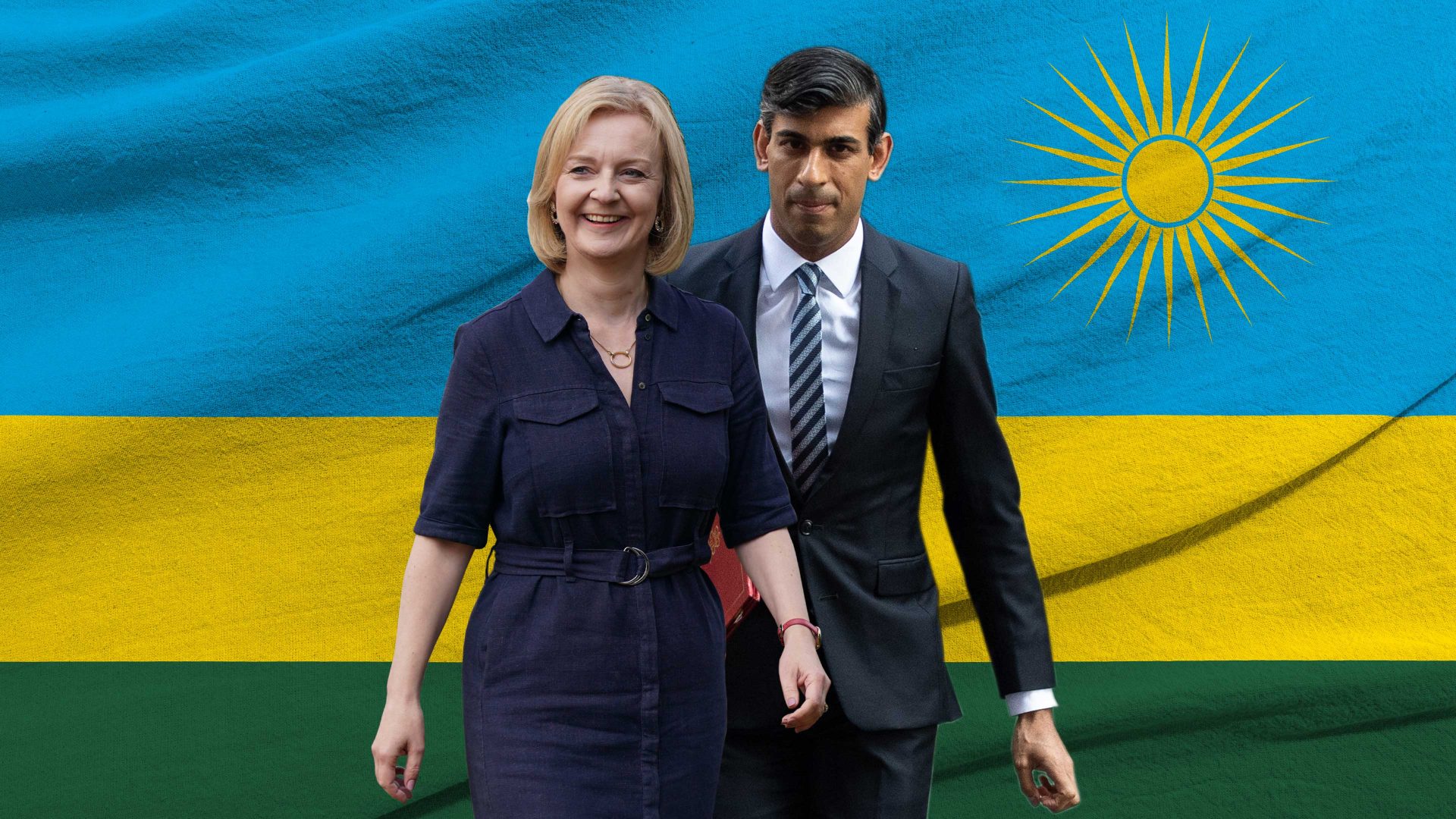With Liz Truss and Rishi Sunak engaged in a bitter struggle for leadership of an increasingly right wing Tory party, both candidates are intent on doubling down on one of Boris Johnson’s most extreme policies; his plan to send refugees on a one-way flight to Rwanda.
But while the scheme has been beset by legal challenges and heavy criticism at home and abroad, a parallel scheme is forming on the other side of the North Sea.
In 2021 Denmark’s government passed legislation allowing for asylum seekers to be sent outside the EU, and talks there to establish a “reception centre” in Rwanda have been going on for some time.
Abdicating responsibility for refugees to countries least equipped to meet their needs is nothing new – the majority of refugees remain in their region of origin. But these “cash-for-humans” schemes – where wealthy states promise investment to developing nations in exchange for abandoning their responsibility for refugees – are a disturbing development.
Across ostensibly liberal Western states, politicians and the media have stoked hostility against refugees to spin the failings of under-resourced and poorly managed asylum and welfare systems into a justification for inhumane treatment of people fleeing war and torture. This trend is not only morally abhorrent, but threatens the integrity of the whole international framework for protecting refugees.
Previous experiments have been human rights disasters. Australia’s detention centres on Papua New Guinea’s Manus Island and the island of Nauru have become synonymous with human misery, with child sexual abuse widespread and conditions so dire that in 2018 a 12-year-old girl tried to set herself on fire.
Similarly, almost all the 4,000 asylum seekers sent from Israel to Rwanda between 2014 and 2017 under a “voluntary removal” scheme left the country almost immediately, with many falling prey to criminal gangs that traffic refugees to Europe. The few who remained often experienced grinding poverty and destitution.
While the failure of the Israeli scheme has not dampened the British and Danish governments’ enthusiasm, proposals to remove refugees to Rwanda carry serious human rights risks.
Political opposition groups and the free press in Rwanda are severely repressed, and minorities, particularly LGBTQI people, face frequent persecution. Violence by state forces is widespread and both British and Danish officials have expressed concern in recent years about continued reports of arbitrary detention and torture by the Rwandan state.
Despite this, both the UK and Denmark have played down or ignored the risks that survivors of torture and other vulnerable groups would face in Rwanda. Disturbingly, neither state has exempted survivors from removal, and several such people are among those who have received notifications of removal to Rwanda from the UK government. Indeed, it was revealed recently that UK ministers ignored repeated warnings from senior civil servants and the British High Commissioner to Rwanda about these risks.
But the issue at stake goes far deeper than Rwanda’s unsuitability as a host for Europe’s unwanted refugees. The UN has warned both the UK and Denmark that their plans probably violate international law, most notably the 1951 UN Refugee Convention, and Freedom from Torture is supporting legal challenges against the scheme in the UK courts.
These international rules were laid down in the wake of the Holocaust to ensure that people fleeing war, torture and persecution are not punished for seeking sanctuary. Outsourcing our responsibility to protect refugees undermines the spirit of cooperation on which our international rules-based system is premised, at a time when international conflicts and existential threats such as climate change make it ever more urgent that states work together to tackle global problems.
Russia’s devastating invasion of Ukraine has caused the largest displacement of people in Europe since the second world war and brought the continued importance of these rules into sharp relief. If we abandon our responsibilities, we send a clear message to dictators and strongmen around the world that international treaties can be broken at will.
As former UN secretary general Ban Ki-moon warned earlier this year, the UK’s Rwanda plan “threatens to undermine the integrity” of the entire global asylum system. The United Nations High Commissioner for Refugees has been equally critical of Denmark’s plans.
There are alternatives to abandoning people to an uncertain fate in another country. We could invest in our neglected asylum systems, ensuring swift protection to those who need it and a dignified alternative for those who don’t. Greater effort could be made to expand safe routes and rescue missions in danger zones such as the Channel, so that fewer people need to risk their lives to flee persecution. Governments must strengthen international cooperation on refugee protection, and ensure diplomatic and humanitarian interventions to reduce the factors driving people to make perilous journeys to reach safety.
But if we want our governments to change course, we need to make our voices heard. It is up to caring people across Europe to fight for a system where people seeking safety are treated with dignity, humanity and compassion.
Sonya Sceats, Chief Executive, Freedom from Torture
Rasmus Grue Christensen, Chief Executive, DIGNITY – Danish Institute against Torture.










